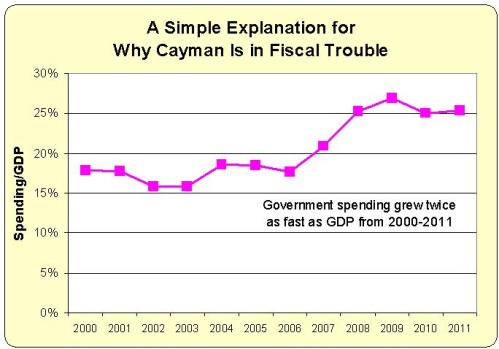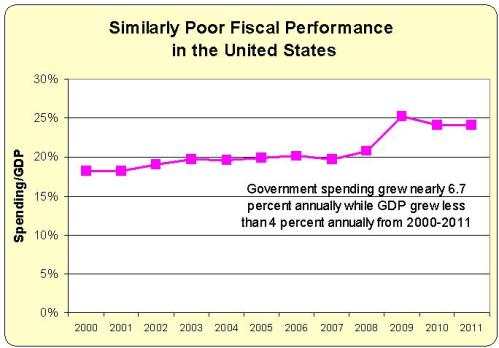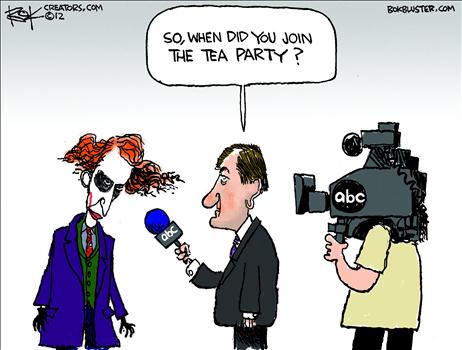I periodically provide mind-blowing examples of individuals who have their lives turned upside down by evil bureaucrats.
You may think “evil” is too strong a word, but it sticks in my mind after perusing these examples of abusive actions by the federal government.
- A story of vicious IRS persecution.
- Two stories of innocent people who were victimized by the idiotic Drug War.
- A video about how the EPA tried – and fortunately failed – to destroy a family.
- A story about the Justice Department’s discriminatory attack on a hapless homeowner.
Now we have a George Will column that will get you very angry. At least if you’re a good person.
Will starts by describing the federal bureaucracy’s attack on an innocent woman for a non-crime.
…our unhinged government, with an obsession like that of Melville’s Ahab, has crippled Nancy Black’s scientific career, cost her more than $100,000 in legal fees — so far — and might sentence her to 20 years in prison. This Kafkaesque burlesque of law enforcement began when someone whistled. Black, 50, a marine biologist who also captains a whale-watching ship, was with some watchers in Monterey Bay in 2005 when a member of her crew whistled at the humpback that had approached her boat, hoping to entice the whale to linger. Back on land, another of her employees called the National Oceanic and Atmospheric Administration (NOAA) to ask if the whistling constituted “harassment” of a marine mammal, which is an “environmental crime.” NOAA requested a video of the episode, which Black sent after editing it slightly to highlight the whistling. NOAA found no harassment — but got her indicted for editing the tape, calling this a “material false statement” to federal investigators, which is a felony under the 1863 False Claims Act, intended to punish suppliers defrauding the government during the Civil War.
But it gets worse, because the federal jack-boots then raided her office (I don’t even know what “jack-boots” are, but they signify government thuggery, and that’s definitely a good description of what happened).
…after this bizarre charge — that she lied about the interaction with the humpback that produced no charges — more than a dozen federal agents, led by one from NOAA, raided her home. They removed her scientific photos, business files and computers.
This unfortunate woman has also been charged with another non-crime.
She has also been charged with the crime of feeding killer whales when she and two aides were in a dinghy observing them feeding on strips of blubber torn from their prey — a gray whale. To facilitate photographing the killers’ feeding habits, she cut a hole in one of the floating slabs of blubber and, through the hole, attached a rope to stabilize the slab while a camera on a pole recorded the whales’ underwater eating. So she is charged with “feeding” killer whales that were already feeding on a gray whale they had killed. She could more plausibly be accused of interfering with the feeding.
As an aside, Will notes that the NOAA bureaucrats have little regard for the Constitution.
Six years ago, NOAA agents, who evidently consider the First Amendment a dispensable nuisance, told Black’s scientific colleagues not to talk to her and to inform them if they were contacted by her or her lawyers. Since then she has not spoken with one of her best friends.
Most important, he concludes with the key point about how all of us are threatened by Leviathan.
In 1980, federal statutes specified 3,000 criminal offenses; by 2007, 4,450. They continue to multiply. Often, as in Black’s case, they are untethered from the common-law tradition ofmens rea, which holds that a crime must involve a criminal intent — a guilty mind. Legions of government lawyers inundate targets like Black with discovery demands, producing financial burdens that compel the innocent to surrender in order to survive. The protracted and pointless tormenting of Black illustrates the thesis of Harvey Silverglate’s invaluable 2009 book, “Three Felonies a Day: How the Feds Target the Innocent.” Silverglate, a civil liberties lawyer in Boston, chillingly demonstrates how the mad proliferation of federal criminal laws — which often are too vague to give fair notice of what behavior is proscribed or prescribed — means that “our normal daily activities expose us to potential prosecution at the whim of a government official.” Such laws, which enable government zealots to accuse almost anyone of committing three felonies in a day, do not just enable government misconduct, they incite prosecutors to intimidate decent people who never had culpable intentions. And to inflict punishments without crimes. …The more Americans learn about their government’s abuse of criminal law for capricious bullying, the more likely they are to recoil in a libertarian direction and put Leviathan on a short leash.
Utterly disgusting. As Glenn Reynolds periodically suggests, “tar, feathers” would be an appropriate way of dealing with these hyenas.
By the way, government thuggery is not limited to the crowd in Washington.
- If you have a soul, you will be outraged by this example of a local government abusing poor people.
- If you have decency, you will be disgusted by this example of a state government persecuting someone who didn’t commit a crime.
- If you believe in basic rights, you will be horrified by this example of a foreign government seeking to outlaw political dissent and free speech.
P.S. For the second time, I feel compelled to apologize to Hyenas. They’re part of the natural ecosystem. Thuggish bureaucrats, by contrast, are a malignant and artificial force.




































